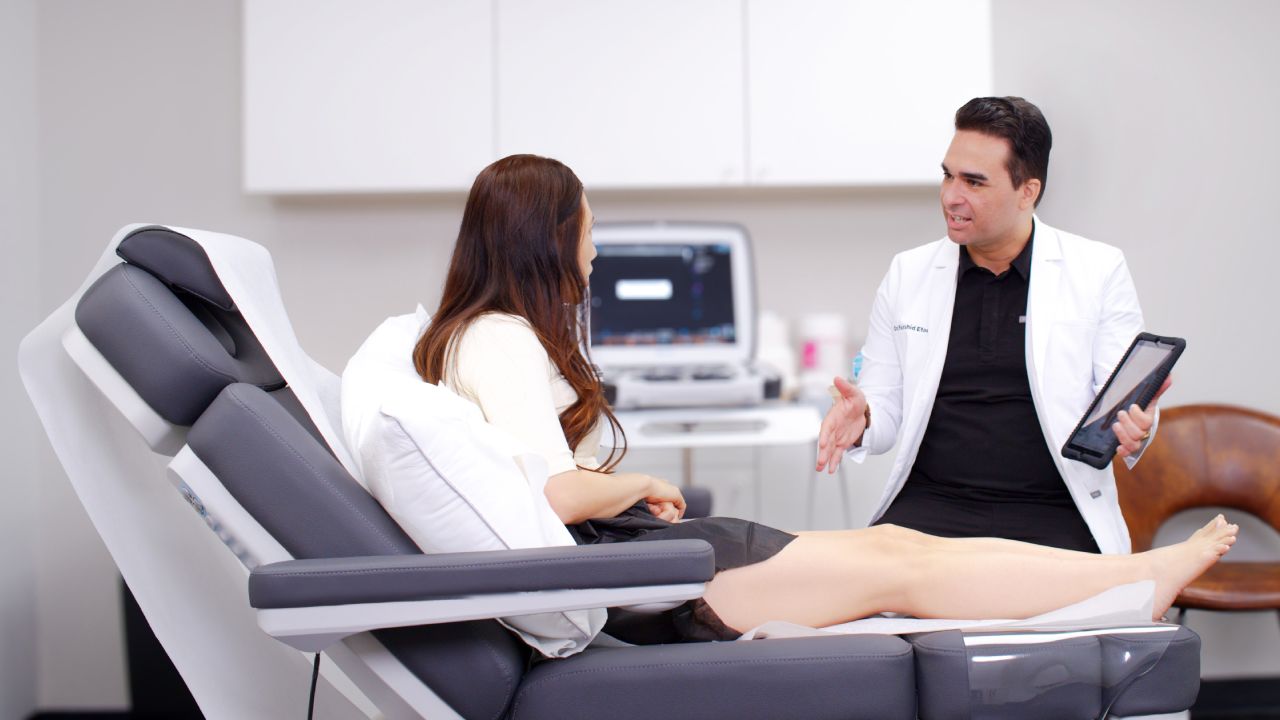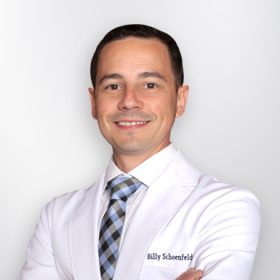If you’re considering sclerotherapy as a treatment option for varicose veins or spider veins, you may have concerns about the effectiveness and potential complications. One common question that arises is whether veins can get worse after sclerotherapy. In this article, we will delve into the details of sclerotherapy, its effects on treated veins, and the factors that can influence the outcome of the procedure.
What is the Sclerotherapy treatment?
Sclerotherapy is a highly effective and minimally invasive treatment option for varicose veins and spider veins. This procedure involves precisely injecting a sclerosing agent directly into the affected blood vessels, targeting the underlying cause of the vein abnormalities.
The sclerosing agent is injected into the targeted veins using a very fine needle. The sclerosing agent irritates the inner lining of the blood vessels, causing them to collapse and stick together. As a result, blood flow is rerouted to healthier veins. The body’s natural healing processes take over. The treated veins gradually undergo fibrosis and transform into scar tissue. The body absorbs This scar tissue, leading to the fading and eventual disappearance of the veins.
The number of sclerotherapy sessions required depends on the severity of the vein condition and the individual response to treatment. Multiple sessions may be needed to achieve optimal results. Following each session, compression stockings are typically worn to promote healing and enhance the effectiveness of the treatment. Sclerotherapy is a safe procedure with minimal discomfort and downtime. It can be performed in an outpatient setting, and most patients can resume their normal activities shortly after treatment.
The Illusion of Worsening Veins
Sometimes, patients may mistakenly perceive their veins as worsening after sclerotherapy. This can occur due to temporary side effects of the procedure, such as bruising, inflammation, or discoloration. These post-treatment effects are usually temporary and part of the healing process. It’s important to remember that the treated veins need time to fade and be reabsorbed by the body. Patience is key, as the final results of sclerotherapy may take several weeks or even months to fully manifest.
The Potential for Vein Worsening
While sclerotherapy is generally safe and effective, there is a possibility that veins can worsen after treatment. However, it’s important to understand that this occurrence is relatively rare and can be influenced by various factors. Let’s explore some of these factors in detail.
Incomplete Treatment
Properly administering sclerotherapy requires the expertise of a skilled and experienced vein doctor. If the treatment is not performed thoroughly or if any varicose or spider veins are missed during the procedure, there is a chance that these untreated veins may worsen over time.
Reflux and Residual Veins
Varicose veins, in particular, are often caused by venous reflux, a condition where blood flows backward and pools in the veins. Sclerotherapy may effectively treat visible varicose veins, but if the underlying cause of venous reflux is not addressed, new varicose veins may develop or existing ones may recur.
Allergic Reactions
Although rare, allergic reactions to the sclerosing agent can occur. An allergic reaction can lead to inflammation and other complications that may affect the outcome. It’s crucial to discuss any allergies or previous allergic reactions with your vein doctor before undergoing sclerotherapy.
Injection Site Complications
Occasionally, complications can arise at the injection site. These can include bruising, discoloration, or the formation of small ulcers. These complications resolve on their own, but in some cases, they can cause discomfort and potentially affect the final cosmetic outcome.
Post-Treatment Care
Proper aftercare plays a vital role in the success of any vein treatment, including sclerotherapy. It is essential to follow your vein doctor’s instructions carefully. This may include wearing compression stockings, avoiding strenuous activities, and maintaining a healthy lifestyle. Failing to adhere to these guidelines may hinder the healing process and increase the risk of complications or vein worsening.
Previous Treatment History
If you have undergone sclerotherapy in the past, the results of a subsequent treatment may vary. Factors such as the severity of the condition, the type of veins treated, and the technique used in previous treatments can influence the outcome of subsequent procedures. It’s crucial to discuss your treatment history with your vein doctor so that they can personalize the treatment plan accordingly.
Our Approach at Vein Treatment Clinic
At Vein Treatment Clinic, we prioritize patient safety and satisfaction. Our board-certified vein doctors have extensive experience in diagnosing and treating varicose veins and spider veins. We offer a range of minimally invasive treatments, including sclerotherapy, endovenous laser ablation (EVLA), radiofrequency ablation (RFA), VenaSeal, ClariVein, and ambulatory phlebectomy. Before any treatment, we conduct a comprehensive duplex ultrasound to assess the underlying causes and design a personalized treatment plan. We believe in providing transparent and honest care, addressing all your concerns.
Early Intervention Is Essential
When it comes to vein conditions, early intervention is crucial. Addressing varicose and spider veins at the early stages can prevent them from worsening and causing more significant complications in the future. If you notice the appearance of visible veins or experience symptoms such as heaviness, pain, or swelling in your legs, it’s important to seek medical attention promptly. A board-certified vein doctor can diagnose the underlying cause of your vein issues and recommend the most appropriate treatment, including sclerotherapy, to achieve optimal outcomes. Don’t delay seeking treatment and take control of your vein health.
Treat Your Varicose Veins!
While veins can worsen after sclerotherapy, rest assured that at Vein Treatment Clinic, we prioritize your safety and satisfaction. Our board-certified vein doctors have extensive experience in diagnosing and treating varicose veins and spider veins. We offer state-of-the-art locations across the United States, including New York, New Jersey, Long Island, California, and Maryland.
By choosing us, you’ll receive personalized care and a thorough evaluation of your condition. We will diagnose the underlying cause of your vein issues using duplex ultrasound before curating a personalized treatment plan. Our expert vein doctors will guide you through the entire process, providing clear instructions and addressing any concerns or questions you may have.
Take the first step towards healthier veins by scheduling a consultation with our experienced vein doctors at Vein Treatment Clinic. Don’t let vein issues worsen or affect your quality of life.









